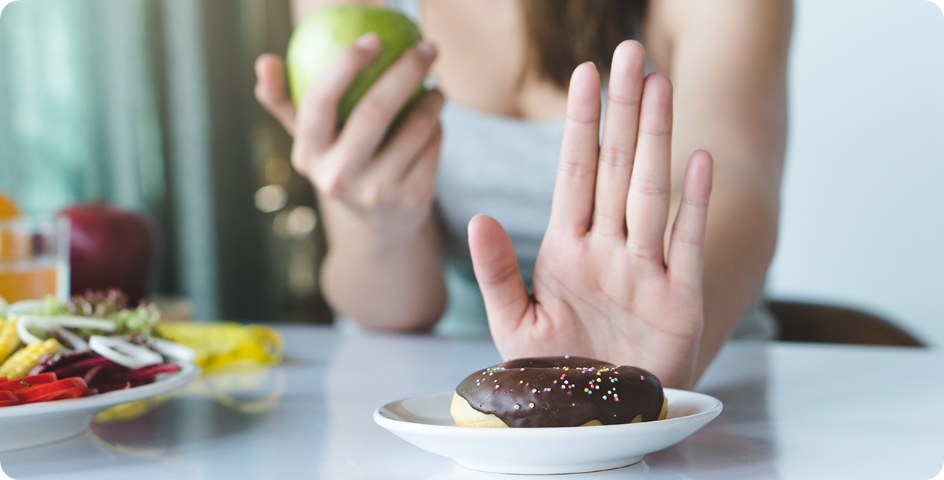
Foods and Drinks to Avoid After Bariatric Surgery
Weight loss surgery involves reducing your stomach’s capacity so that you consume less food and fewer calories. Because your stomach will hold significantly less food after bariatric surgery, you must be picky with what you choose to eat. Besides, eating certain foods can cause uncomfortable side effects, like nausea, vomiting, and diarrhea.
Alcohol
Alcohol is high in calories, and it won’t be recommended as part of your post-bariatric surgery diet. Alcoholic beverages take up precious space in your stomach that needs to go to foods packed with vitamins and minerals during a post-surgery diet. Also, alcohol absorption increases dramatically after surgery, which can lead to intoxication.
Patients are often directed to drink 2 liters (or eight glasses) of water every day. It’s important to remember not to drink beverages with food for 30 minutes before or after a meal for your post-surgery diet. This habit, essential to any weight loss surgery diet, will help you feel full and will save space in your pouch for nutrients.
Tough Meats
One of the routines bariatric patients must learn while on a post-surgery diet is to chew their food really well. Because the more you chew, the easier it is to swallow and digest your food. Lean meats are an essential part of a diet procedure because getting enough protein is very important. Chewing is particularly important when you are eating meat. While you are getting used to chewing more, you should choose meats without fat or gristle. Start with small bites that are the size of a pea. This time, you should avoid steak, pork chops, hot dogs, and ham. Instead, choose minced chicken or turkey, baked chicken or fish.
This wellness learning process is personal, and your dining experiences may not be the same as with another patient, even if they had the same surgery at the same time as you. What you can tolerate will not be the same as another person.
Food with Empty Calories
Since your stomach size is small after bariatric surgery, you will need to get enough daily nutrition by you making wise diet choices. A bariatric surgery diet means avoiding foods that have little or no nutritional value. These foods include pastries, sweets, chips, pretzels, rice cakes, and popcorn. If you eat these foods, you can end up undernourished or gaining back your weight. Foods loaded with sugar or that are fried can cause a condition called “dumping syndrome,” in which these foods are dumped in the colon quickly after you eat them. Dumping syndrome leads to weakness, cold sweats, nausea, and possibly vomiting and diarrhea.
Dry Foods
Since it is not recommended to drink liquids while eating, you may want to avoid dry foods, at least at the beginning of the final phase of your bariatric surgery diet. Foods like nuts or granola may be difficult to swallow without liquids. You can have regular cereal, but you should make sure it is softened by low-fat milk. You may try very small pieces of these foods to see if you can tolerate them as part of your bariatric surgery diet. But if not, don’t become discouraged, as your body further heals, you may be able to eat these foods later during your post-bariatric surgery diet.
Rice, Pasta, Bread
Because of the starchy nature of bread, rice, and pasta, after your bariatric surgery, they can form a paste in your throat that is hard to swallow without liquid. In some cases, even they can block the stoma, the hole in the pouch that is your new stomach. You don’t have to completely reject these high-starch foods, but it’s best to avoid them at the beginning of the bariatric diet. If you do eat them, try to have very small portions and make sure that you only eat small bites of each.
Fibrous Fruits and Vegetables
You should be eating lots of nutritious fruits and vegetables as part of your diet, but do not prefer hard-to-digest, fibrous vegetables. Celery, corn, broccoli, cabbage, and asparagus are foods to definitely avoid at the beginning bariatric diet. Over time, you may be able to tolerate these foods, but in the short term, you should eat cooked, soft vegetables with no skin. Beans and peas are a good choice because they will also ensure the extra protein that you will need to maintain proper nutrition on your post-surgery diet. Also, raw, fibrous vegetables are usually a problem after bariatric surgery because they are hard to digest.
Sugary and Highly Caffeinated Beverages
Any drink with sugar, corn syrup, or fructose is something to avoid post-bariatric surgery. Drinking sugary drinks like soda and some fruit juices while on your diet can lead to dumping syndrome, instead, you can choose water, unsweetened packaged drinks, decaffeinated coffee, and tea.
Besides, it is suggested that you avoid caffeinated beverages like coffee and tea immediately following weight loss surgery, as they can stimulate acid secretion and irritate your digestive tract. Caffeine leads to dehydration, as it has a diuretic effect, so even if you can tolerate it, you should be aware of staying hydrated.
High-Fat Food
Eating fatty foods after surgery may make you nauseous and they are not right for long-term success at weight loss. Avoid the bacon, sausage, butter, whole milk, and hard cheeses, and prefer lower-fat options instead such as low-fat sandwich meats, lean beef, chicken, turkey, and low-fat cheeses. Eating too much fat in your diet can make you feel sick and may lead to dumping syndrome.
Spicy Foods
Initially, spicy foods may be difficult for bariatric patients’ digestive systems to process. It’s best to re-incorporate foods into your diet slowly after weight loss surgery. If you find that you can not tolerate spicy foods at first, you should wait a while before trying to re-introduce them to your diet.

The Study of Foods And Drinks You Avoid After Bariatric Surgery
In a recent study published in the International Journal of Bariatric Nutrition, researchers examined the dietary habits of post-bariatric surgery patients to understand the impact of specific food choices on their overall well-being and weight loss outcomes. The study found a strong correlation between the consumption of high-fat and sugary foods and adverse effects such as dumping syndrome, which led to symptoms like weakness, cold sweats, and gastrointestinal distress. This research highlights the importance of adhering to a healthy diet after bariatric surgery and the significance of avoiding foods and beverages that can negatively impact post-surgery recovery and long-term weight loss success,” the study concluded.
A New Healthy Diet After Bariatric Surgery
After weight loss surgery, it’s important to get adequate nourishment while keeping your weight-loss goals on track. Your doctor and dietician are likely to recommend that you:
Keep meals small: Eat several small meals a day, for example, you might start with six small meals a day, then move to four meals, and finally, when following a regular diet, three meals a day. Each meal should include about half to one cup of food.
Eat and drink slowly. Eat your meals for at least 30 minutes to avoid dumping syndrome. Should take up to 60 minutes to drink 1 glass of fluid. Also, wait 30 minutes before or after each meal to drink liquids.
Drink liquids between meals: You should avoid dehydration, you’ll need to drink at least 8 cups (2 liters) of fluids a day. But drinking too much liquid around mealtime can leave you feeling overly full and prevent you from eating enough nutrient-rich food.
Chew food thoroughly. The new opening that leads from your stomach into your small intestine is very narrow and can be blocked by larger pieces of food anymore. Blockages prevent food from healthy leaving your stomach and can cause vomiting, nausea, and abdominal pain. You should take small bites of food and chew them to a pureed consistency before swallowing.
You should avoid foods that are high in fat and sugar. These foods travel quickly through your digestive system and lead to dumping syndrome.
Focus on high-protein foods: You should prefer to eat these foods before you eat other foods in your meal.
Take recommended vitamin and mineral supplements: After weight loss surgery your body won’t be able to absorb enough nutrients from your food. You’ll likely need to take the multivitamin supplement every day for the rest of your life.
Consultation
Eating healthy and avoiding old habits after surgery is a difficult process. Healthy Türkiye offers some of the best bariatric care in Turkey. Our multi-disciplined team is ready to make you as comfortable as possible during your recovery from your surgery.